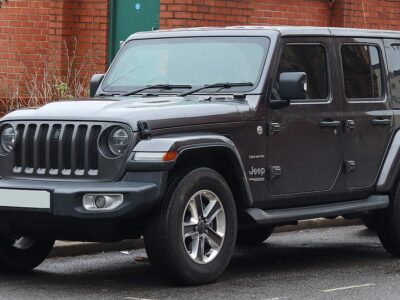
Peugeot 208 Engines: Full Guide to Petrol, Diesel, and Hybrid Powertrains
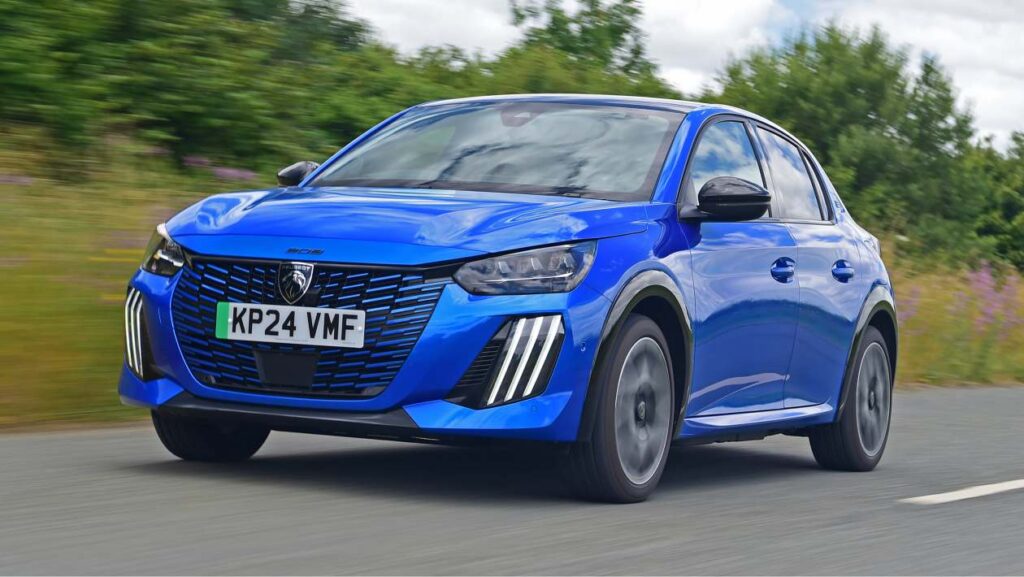
When it comes to compact hatchbacks, the Peugeot 208 stands out for its blend of style, refinement, and variety. Its engine lineup caters to a broad spectrum of drivers—from urban commuters who prize efficiency to those who want an agile yet punchy performer. In this detailed guide, we break down every engine available in the Peugeot 208 range, covering petrol, diesel, and hybrid options, as well as driving impressions, gearbox choices, and overall performance.
- Peugeot 208 Petrol Engines
- Peugeot 208 Diesel Engine (Discontinued)
- Peugeot 208 Hybrid Engines
- Performance and Driving Experience
- Interior Refinement and Driving Ergonomics
- Gearbox Choices and Transmission Feel
- Fuel Economy and Real-World Efficiency
- Used Peugeot 208 Engines to Consider
- Peugeot 208 Engine Comparison Chart
- Final Verdict
Peugeot 208 Petrol Engines
1.2-Litre Three-Cylinder PureTech Range
The backbone of the Peugeot 208 lineup is the 1.2-litre PureTech engine, a compact three-cylinder powerhouse known for its balance between efficiency and liveliness. Over the years, this engine has appeared in several forms, each tuned for different needs.
| Engine | Turbocharged | Power Output | 0–62 mph | Transmission | Notes |
|---|---|---|---|---|---|
| 1.2 PureTech 75 | No | 75 hp | 14.9 s | 5-speed manual | Ideal for city use but lacks power on highways |
| 1.2 PureTech 100 | Yes | 100 hp | 10.8 s | 6-speed manual or 8-speed auto | The sweet spot of the range |
| 1.2 PureTech 110 Hybrid | Mild hybrid | 110 hp | 10.2 s | e-DCS6 automatic | Better for mixed driving |
| 1.2 PureTech 145 Hybrid | Mild hybrid | 145 hp | 8.7 s | e-DCS6 automatic | More refined at speed |
PureTech 75: Simple but Slow
The PureTech 75 lacks a turbocharger, meaning it feels sluggish, especially on open roads. With 0–62 mph in 14.9 seconds, it’s not built for performance but for simplicity and urban convenience. Still, it’s a dependable option for city dwellers who rarely hit the motorway.
PureTech 100: The Balanced Choice
The PureTech 100 is widely regarded as the engine most buyers should pick. It’s turbocharged for improved torque and acceleration, making it flexible enough for both urban driving and longer journeys. The six-speed manual gearbox offers a good spread of ratios, although its oddly shaped knob might take some getting used to.
This engine feels “alive” without being overly sporty—quick to respond, smooth in delivery, and economical to run. It’s also quieter and more refined than most rivals, thanks to Peugeot’s well-tuned three-cylinder setup.
Peugeot 208 Diesel Engine (Discontinued)
| Engine | Type | Power | Torque | Transmission | 0–62 mph | Status |
|---|---|---|---|---|---|---|
| 1.5 BlueHDi | 4-cylinder diesel | 130 hp | 250 Nm | 6-speed manual | 10.2 s | Discontinued |
The 1.5 BlueHDi diesel was a strong option for high-mileage drivers, offering 250 Nm of torque and superb fuel economy. However, slow sales and tightening emissions regulations led to its discontinuation. While no longer available new, it remains an attractive choice for used buyers seeking motorway efficiency and low running costs.
Peugeot 208 Hybrid Engines
Introduction to the 2023 Hybrid System
Peugeot introduced mild-hybrid technology to the 208 lineup in 2023, combining the proven 1.2-litre petrol engine with a small electric motor and battery. This setup enables short periods of electric-only driving, mainly at low speeds or during deceleration.
Hybrid 110 vs Hybrid 145
Both hybrid versions use the same 1.2-litre three-cylinder petrol engine, but with different power calibrations:
- Hybrid 110 – suitable for everyday driving, smooth and efficient
- Hybrid 145 – offers more performance and better responsiveness at higher speeds
Both pair with a six-speed dual-clutch automatic gearbox (e-DCS6), which contributes to the seamless blending of combustion and electric power at cruising speeds.
You may be interested in reading Peugeot 208 Timing Belt Replacement Cost UK (2025 Guide)
Peugeot 208 Timing Belt Replacement Cost UK (2025 Guide)Strengths and Weaknesses
- ✅ Pros: Improved efficiency, reduced CO₂ emissions, refined at motorway speeds
- ❌ Cons: Transmission can be jerky in stop-and-go traffic, and regenerative braking feels inconsistent
While the hybrid technology enhances refinement at higher speeds, the gearbox behavior in urban driving can feel cumbersome, making it less suited to city-only use compared to a traditional automatic or EV.
Performance and Driving Experience
Agility and Handling
The Peugeot 208 impresses with light, precise steering and a tiny steering wheel, delivering a responsive, almost go-kart-like feel around town. It’s a breeze to park, thread through tight streets, or weave through traffic.
However, the steering assistance can feel over-light at motorway speeds, occasionally creating a “floaty” sensation. The Sport driving mode, available on certain trims, adds welcome weight and stability to the steering feel.
Comfort and Suspension Behavior
Ride comfort varies significantly based on trim level and wheel size:
| Trim | Wheel Size | Ride Comfort | Notes |
|---|---|---|---|
| Active / Allure | 15–16 in | Smooth and compliant | Best for urban comfort |
| GT / GT Line | 17–18 in | Firmer, less forgiving | Sharper handling, sportier look |
Smaller wheels contribute to a more cushioned, forgiving ride—perfect for daily commuting. The GT trims with larger alloys, on the other hand, trade some comfort for a sportier stance and improved cornering stability.
Despite some body roll and a softly sprung chassis, the 208 remains composed and predictable, especially on well-maintained roads. Compared to rivals like the Vauxhall Corsa (which shares the same platform), the Peugeot feels more refined and quieter inside.
Interior Refinement and Driving Ergonomics
Peugeot’s signature i-Cockpit layout gives the 208 a futuristic edge. The compact steering wheel and elevated digital display encourage a more engaging driving position. Combined with ample seat adjustability, it allows both short and tall drivers to find the perfect setup.
Cabin noise remains impressively low, especially with the PureTech petrol engines, which produce minimal vibration or harshness. Only the hybrids occasionally break the silence with a gruff tone when the petrol engine re-engages.
Gearbox Choices and Transmission Feel
- Manual (6-speed): Available on petrol and diesel engines; crisp but slightly notchy action.
- Automatic (8-speed / e-DCS6): Smooth at speed, but can hesitate during quick throttle transitions.
The hybrid-exclusive dual-clutch gearbox deserves particular attention—it performs best when the car maintains steady speed. However, its behavior in stop-start traffic can feel clunky and less refined than expected in a small city car.
You may be interested in reading Peugeot 208 Timing Belt Replacement Cost UK (2025 Guide)
Peugeot 208 Timing Belt Replacement Cost UK (2025 Guide) Peugeot 208 Tyre Size Guide: Complete Wheel, Pressure & Bolt Pattern Chart (2012–2025)
Peugeot 208 Tyre Size Guide: Complete Wheel, Pressure & Bolt Pattern Chart (2012–2025)Fuel Economy and Real-World Efficiency
| Engine Type | Combined MPG (approx.) | CO₂ Emissions (g/km) | Fuel Type |
|---|---|---|---|
| PureTech 75 | 55 mpg | 118 | Petrol |
| PureTech 100 | 58 mpg | 113 | Petrol |
| BlueHDi 130 | 70 mpg | 98 | Diesel |
| Hybrid 110 | 60 mpg | 104 | Petrol/Electric |
| Hybrid 145 | 63 mpg | 102 | Petrol/Electric |
The diesel once led the range in fuel efficiency, but even the PureTech 100 achieves impressive real-world economy, making it a solid all-rounder. The hybrids provide only a modest fuel gain (around 5 mpg) compared to petrol versions—something to weigh carefully against the higher purchase cost.
Used Peugeot 208 Engines to Consider
If you're exploring the used market, the PureTech 100 remains the most balanced pick. Earlier PureTech 75 models are cheap to run but limited in performance, while the diesel BlueHDi is a smart choice for high-mileage drivers.
When buying used:
- Check for regular oil changes (especially on early PureTechs, which can suffer from timing belt wear).
- Test-drive the gearbox response, particularly on hybrids.
- Avoid overly large wheels if comfort is a priority.
Peugeot 208 Engine Comparison Chart
| Version | Engine | Transmission | Power | 0–62 mph | Fuel Economy | Key Strength |
|---|---|---|---|---|---|---|
| Active 75 | 1.2 L PureTech (NA) | Manual | 75 hp | 14.9 s | 55 mpg | Ideal city car |
| Allure 100 | 1.2 L PureTech (Turbo) | Manual/Auto | 100 hp | 10.8 s | 58 mpg | Balanced performance |
| GT Hybrid 110 | 1.2 L MHEV | Auto | 110 hp | 10.2 s | 60 mpg | Efficiency with refinement |
| GT Hybrid 145 | 1.2 L MHEV | Auto | 145 hp | 8.7 s | 63 mpg | Extra power at higher speeds |
| BlueHDi (Used) | 1.5 L Diesel | Manual | 130 hp | 10.2 s | 70 mpg | Best for long-distance drivers |
Final Verdict
The Peugeot 208 shines as a versatile small car with a smart mix of performance and efficiency options. The PureTech 100 is the all-round champion—punchy, economical, and refined. The hybrids add a layer of sophistication but don’t drastically outperform their petrol equivalents in daily use, while the diesel remains a hidden gem for long-distance drivers exploring the used market.
For most buyers, the choice is clear:
👉 Go for the 1.2 PureTech 100 if you want the perfect blend of economy, drivability, and long-term reliability.
FAQs
1. Which Peugeot 208 engine is the most reliable?
The 1.2 PureTech 100 is the most reliable choice overall, offering a strong balance of performance and proven dependability.
2. Does the Peugeot 208 have good fuel economy?
Yes, especially the PureTech 100 and the Hybrid 145, both achieving well over 55 mpg in real-world conditions.
3. Is the hybrid Peugeot 208 worth buying?
Only if you do a mix of city and motorway driving. The gains in urban fuel economy are minimal, but it’s smoother at speed.
4. What gearbox is best on the Peugeot 208?
The six-speed manual provides better control and reliability, while the e-DCS6 automatic suits those who prefer effortless driving.
 Peugeot 208 Timing Belt Replacement Cost UK (2025 Guide)
Peugeot 208 Timing Belt Replacement Cost UK (2025 Guide) Peugeot 208 Tyre Size Guide: Complete Wheel, Pressure & Bolt Pattern Chart (2012–2025)
Peugeot 208 Tyre Size Guide: Complete Wheel, Pressure & Bolt Pattern Chart (2012–2025)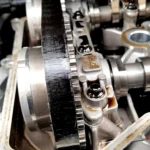 Peugeot 208 Wet Belt Replacement – The Ultimate Owner’s Guide
Peugeot 208 Wet Belt Replacement – The Ultimate Owner’s Guide5. What’s the best Peugeot 208 engine for motorway driving?
The discontinued 1.5 BlueHDi diesel and the Hybrid 145 are best suited for frequent long-distance journeys.
If you want to know other articles similar to Peugeot 208 Engines: Full Guide to Petrol, Diesel, and Hybrid Powertrains you can visit the category Service and Parts.
Leave a Reply

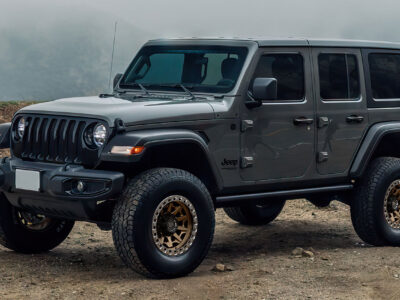



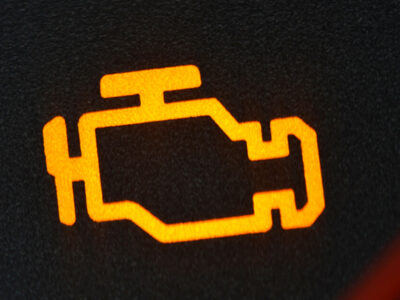
More content of your interest